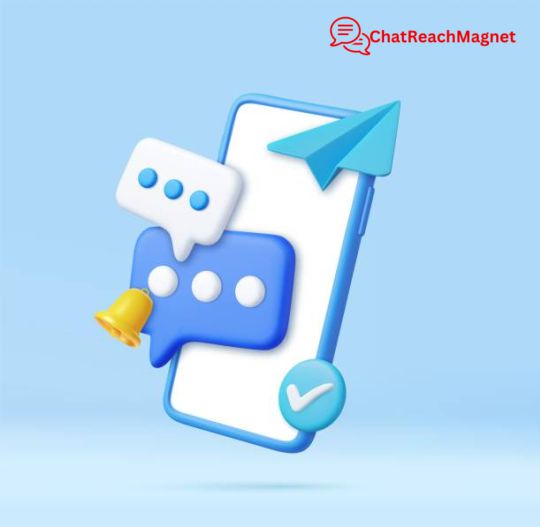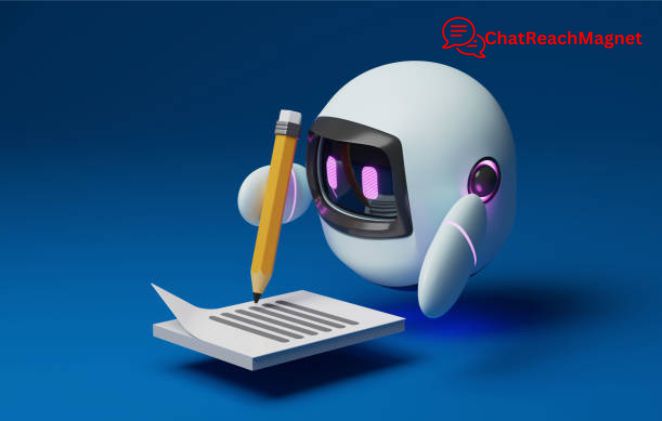A Comprehensive Gudie to WhatsApp Business Chatbots for SMEs.
Have you ever considered the possibility of answering all your customers at whatever hour they call? Imagine the cost it would be for human agents to work round the clock attending to customers on different time zones!
When it comes to connecting with customers, small and medium-sized enterprises (SMEs) have increasingly turned to online platforms to expand their reach and improve their customer service.
Among these platforms, WhatsApp has emerged as a powerful tool for communication, offering businesses a direct line to their customers. But with the rise of digital communication, customer expectations have also grown.
They demand instant responses and personalized interactions, which can be challenging for SMEs with limited resources. This is where WhatsApp Business Chatbots for SMEs come into play.
These chatbots are not just a trend; they are becoming a necessity for businesses looking to stay buoyant in a fast-paced market.
They allow businesses to manage customer inquiries, automate responses, and even drive sales—all within the familiar and widely used WhatsApp interface.
In this guide, we will explore everything you need to know about WhatsApp Business Chatbots for SMEs—from setting them up to maximizing their effectiveness.
Give your SME the right vibes with WhatsApp Business Chatbots and watch your business take its wings to success.
What Are WhatsApp Business Chatbots?
WhatsApp Business Chatbots are automated softwares designed to interact with customers via WhatsApp. They can handle a wide range of tasks—from answering frequently asked questions to processing orders, booking appointments, and even providing customer support.
What makes these chatbots particularly appealing is that they operate within WhatsApp, a platform that over 2 billion people worldwide use regularly.
WhatsApp Business Chatbots for SMEs differ from traditional chatbots in a few key ways.
Firstly, they are designed specifically to work within the WhatsApp ecosystem, taking advantage of its unique features like end-to-end encryption and its massive user base.
Secondly, they are tailored to meet the needs of smaller businesses, offering a more cost-effective and user-friendly solution compared to more complex chatbot systems.
Why Should SMEs Consider WhatsApp Business Chatbots?
The adoption of WhatsApp Business Chatbots for SMEs offers numerous advantages. For one, WhatsApp’s ubiquity means that your customers are likely already familiar with the platform, making the transition to chatbot communication seamless.
The chatbots can handle multiple conversations simultaneously, ensuring that no customer is left waiting, which is particularly useful for SMEs that might not have the manpower to manage customer inquiries 24/7.
Moreover, these chatbots are highly customizable. You can program them to respond to specific customer queries, offer product recommendations, or even send out promotions and discounts.
This level of personalization not only enhances the customer experience but also drives engagement and sales.
Imagine a customer browsing your online store at 10 PM. They have a question about a product, but your customer service team has already signed off for the day.
A WhatsApp Business Chatbot could instantly provide the answer, guide the customer through the purchase process, and even suggest related products—all without any human intervention.
For SMEs, this kind of automated support is invaluable.
What does Setting up WhatsApp Business Chatbots for SMEs Entail?

So, how do you get started with WhatsApp Business Chatbots for SMEs? The first step is to set up your WhatsApp Business account if you haven’t already.
Once that’s done, you will need to access the WhatsApp Business API, which allows you to integrate a chatbot with your account.
Choosing the right platform to build your chatbot is vital. There are various chatbot-building platforms available, each with its own strengths and weaknesses.
Some popular options include Chatfuel, ManyChat, and MobileMonkey, all of which offer features tailored to SMEs.
These platforms usually provide templates and drag-and-drop builders, making it easy to create a chatbot even if you don’t have any programming experience.
After selecting a platform, the next step is integration. This involves connecting your WhatsApp Business account with the chatbot platform and setting up your bot’s functions.
You can start by programming simple automated responses to common questions.
For instance, if a customer asks about your business hours, the bot can instantly reply with the information. A
s you become more comfortable, you can add more complex functions, like processing orders or sending out targeted promotions.
What are the Key Features of WhatsApp Business Chatbots for SMEs?

One of the standout features of WhatsApp Business Chatbots for SMEs is their ability to handle a wide range of customer interactions.
Nonetheless, here are some of the key features that make these chatbots a valuable tool for your business:
#1. Automated Responses: This is perhaps the most basic but essential feature. Automated responses allow your chatbot to instantly reply to customer inquiries, providing the information they need without any delay.
#2. Customer Support Capabilities: Beyond answering questions, your chatbot can be programmed to handle more complex customer service tasks, such as troubleshooting issues or guiding customers through a return process.
#3. Marketing and Sales Integration: Chatbots can also play a role in your marketing strategy. You can use them to send out promotions, recommend products based on customer preferences, or even follow up on abandoned shopping carts.
#4. Analytics and Reporting: Understanding customer behaviour is crucial for any business. Many chatbot platforms offer analytics tools that track how customers interact with your bot. This data can provide valuable insights into customer preferences, helping you refine your chatbot and overall business strategy.
What are the Benefits of WhatsApp Business Chatbots for SMEs?
The benefits of adopting WhatsApp Business Chatbots for SMEs are numerous.
#1. Improvement in response times: Customers today expect immediate answers, and a chatbot can provide that, ensuring that no potential sale is lost due to slow response times.
#2. 24/7 availability: Unlike human employees, a chatbot doesn’t need breaks or sleep, meaning it can assist customers at any time of the day or night. This is particularly beneficial for businesses that operate in multiple time zones or cater to international customers.
#3. Personalized customer interactions: By analyzing customer data, a chatbot can tailor its responses to better meet the needs of each individual customer. This not only improves customer satisfaction but can also lead to increased sales and customer loyalty.
For SMEs, the cost-effectiveness of WhatsApp Business Chatbots is another key benefit. Compared to hiring additional customer service staff, a chatbot is a much more affordable option.
It can handle multiple conversations at once, reducing the need for a large customer service team and allowing you to allocate resources more efficiently.
What are the Challenges and Considerations of Using WhatsApp Business Chatbots for SMEs?
While the advantages of WhatsApp Business Chatbots for SMEs are clear, it’s important to be aware of the potential challenges.
#1. Ensuring that your chatbot is effective and doesn’t frustrate customers: If a chatbot is poorly designed or too limited in its capabilities, it can lead to a negative customer experience.
#2. The issue of privacy and security: These are also important considerations. Since chatbots interact directly with customers and often handle sensitive information, it’s crucial to ensure that your bot complies with all relevant data protection regulations. WhatsApp’s end-to-end encryption provides a good level of security, but you should still take additional steps to safeguard customer data.
#3. Staying compliant with WhatsApp’s policies: WhatsApp has strict guidelines on how businesses can use its platform, and failure to comply can result in your account being suspended or banned. Make sure you thoroughly understand these policies before setting up your chatbot.
What possible Tips can be used for Maximizing the Effectiveness of Your WhatsApp Business Chatbot? Best Practices
To get the most out of your WhatsApp Business Chatbot, it’s important to follow some best practices:
#1. Keep Conversations Natural: While chatbots are automated, it’s important to make the interactions feel as natural as possible. Avoid using overly robotic language and try to personalize responses based on the customer’s previous interactions.
#2. Regularly Update and Improve Your Bot: Customer needs and preferences change over time, so it’s important to regularly update your chatbot to ensure it remains effective. Use the analytics tools provided by your chatbot platform to identify areas for improvement and make the necessary adjustments.
#3. Test Your Bot Before Launching: Before making your chatbot available to customers, make sure to thoroughly test it. This will help you identify any issues and ensure that the bot functions as intended.
#4. Monitor Customer Feedback: Pay attention to what customers are saying about your chatbot. If you notice recurring complaints or suggestions, take them into account and make the necessary improvements.
Can WhatsApp Business Chatbots for SMEs be used for Analytics and Reporting?

A major advantage of using WhatsApp Business Chatbots for SMEs is the ability to track and analyze customer interactions. Most chatbot platforms offer built-in analytics tools that provide insights into how customers are using the bot.
You can track metrics such as the number of interactions, response times, and customer satisfaction ratings.
These analytics are invaluable for understanding your customers’ needs and behaviour.
For example, if you notice that a particular question is frequently asked, you might want to consider adding more detailed information on that topic to your website or marketing materials.
Similarly, if customers are dropping off at a certain point in the conversation, it might indicate that the bot’s responses are unclear or unhelpful.
Regularly reviewing these analytics allows you to continuously improve your chatbot and ensure it remains an effective tool for customer engagement.
What are the Common Mistakes to Avoid when Building WhatsApp Business Chatbots for SMEs?
While WhatsApp Business Chatbots for SMEs offer many benefits, there are some common mistakes that businesses should avoid ensuring the chatbot is as effective as possible:
#1. Overcomplicating the Bot: One of the biggest mistakes is trying to make the chatbot do too much. A bot with too many features can become confusing for customers and may not perform any single task well. Start with a few core functions and expand as needed.
#2. Neglecting Personalization: A generic, one-size-fits-all chatbot is unlikely to engage customers effectively. Make sure your bot is programmed to use customer names, remember past interactions, and tailor responses based on individual preferences.
#3. Ignoring Customer Feedback: Your customers are the best source of information on how well your chatbot is performing. Regularly review feedback and make adjustments to improve the user experience.
#4. Not Testing Thoroughly: Before launching your chatbot, it’s crucial to test it thoroughly. This includes testing different conversation paths, ensuring the bot can handle unexpected inputs, and verifying that it integrates smoothly with other systems.
#5. Failing to Update the Bot: Customer needs and preferences change over time, and your chatbot should evolve accordingly. Regularly update your bot to ensure it remains relevant and effective.
What are the Privacy and Security Concerns of Implementing WhatsApp Business Chatbots for SMEs?
When implementing WhatsApp Business Chatbots for SMEs, privacy and security should be top priorities. WhatsApp offers end-to-end encryption, which provides a strong foundation for secure communications. However, there are additional steps you should take to protect customer data and ensure compliance with relevant regulations.
#1. Data Protection: Ensure that your chatbot only collects the necessary data to perform its functions. Avoid storing sensitive information unless absolutely necessary, and always comply with data protection regulations such as GDPR.
#2. Secure Integrations: If your chatbot is integrated with other systems, such as your CRM or payment gateway, make sure these integrations are secure. Use trusted platforms and regularly update them to patch any vulnerabilities.
#3. User Consent: Always obtain explicit consent from users before collecting their data or subscribing them to marketing messages. This not only ensures compliance with regulations but also builds trust with your customers.
By prioritizing privacy and security, you can protect your customers and build a reputation as a trustworthy business.
Are there Examples of Successful SME Implementations so far?
To understand the real-world impact of WhatsApp Business Chatbots for SMEs, let us quickly look at a few examples of successful implementations:
#1. Local Retail Store: A small boutique used a WhatsApp Business Chatbot to handle customer inquiries during peak shopping seasons. The bot answered questions about product availability, store hours, and ongoing promotions. As a result, the store saw a 30% increase in customer engagement and a significant reduction in missed sales opportunities.
#2. Restaurant Chain: A regional restaurant chain implemented a chatbot to manage online reservations and takeout orders. The bot was also programmed to suggest menu items based on customer preferences. This not only streamlined the ordering process but also increased the average order value by 15%.
#3. Healthcare Clinic: A small healthcare clinic introduced a WhatsApp chatbot to schedule appointments and provide basic medical information. Patients appreciated the convenience of booking appointments via WhatsApp, leading to improved patient satisfaction and a 20% reduction in no-show rates.
These examples demonstrate how versatile WhatsApp Business Chatbots for SMEs can be, providing tangible benefits across various industries.
Are there Future Trends of WhatsApp Business Chatbots for SMEs?

The world of WhatsApp Business Chatbots for SMEs is constantly developing, and there are several exciting trends on the horizon.
One of the most significant trends is the integration of artificial intelligence (AI) and machine learning into chatbots. These technologies have the potential to make chatbots even more intelligent and capable of handling more complex tasks.
Another trend to watch is the expansion of chatbot features and capabilities. As chatbot platforms continue to develop, we can expect to see new features that will make chatbots even more useful for SMEs.
For example, voice-activated chatbots could become more common, allowing customers to interact with businesses using voice commands.
Finally, the role of chatbots in customer service is likely to continue growing. As more businesses adopt chatbots, customers will come to expect this level of service, making it even more important for SMEs to stay ahead of the curve.
Conclusion
In conclusion, WhatsApp Business Chatbots for SMEs offer a powerful tool for improving customer service, increasing sales, and staying on top of your game amidst the massive competition in the digital world.
While there are challenges to consider, the benefits far outweigh the drawbacks.
By carefully designing and implementing a chatbot, SMEs can provide their customers with the instant, personalized service they expect while freeing up resources to focus on other areas of the business.
As technology continues to advance, the potential for chatbots in SME operations will only continue to grow, making now the perfect time to start exploring how a WhatsApp Business Chatbot for SMEs can benefit your business.

